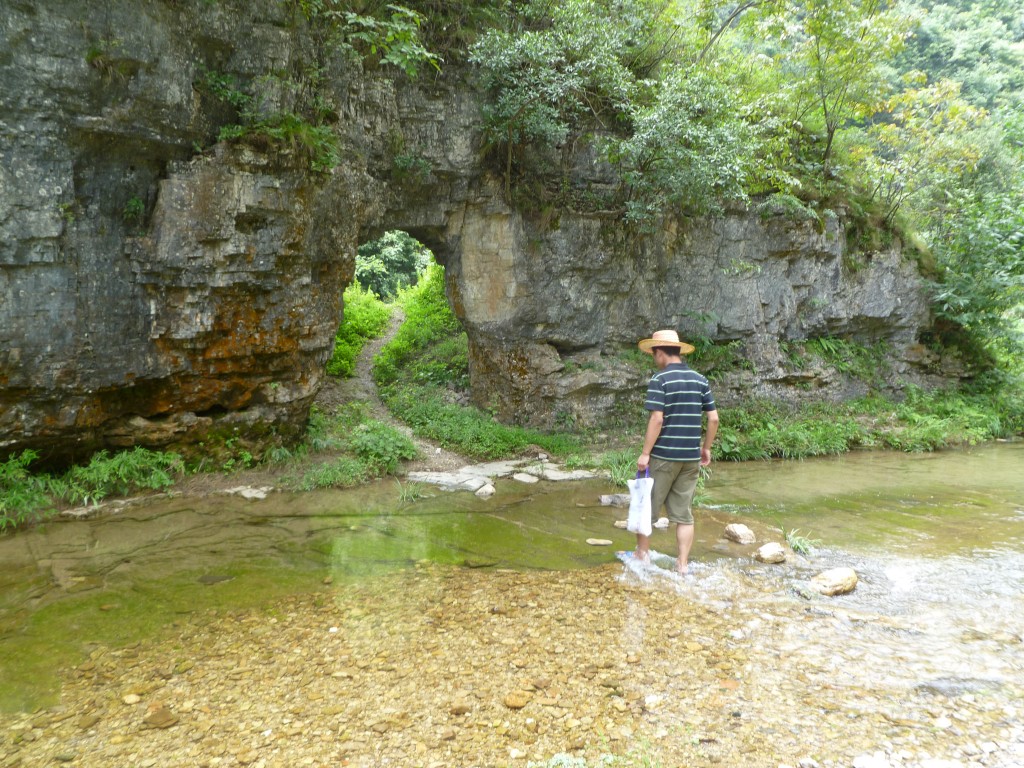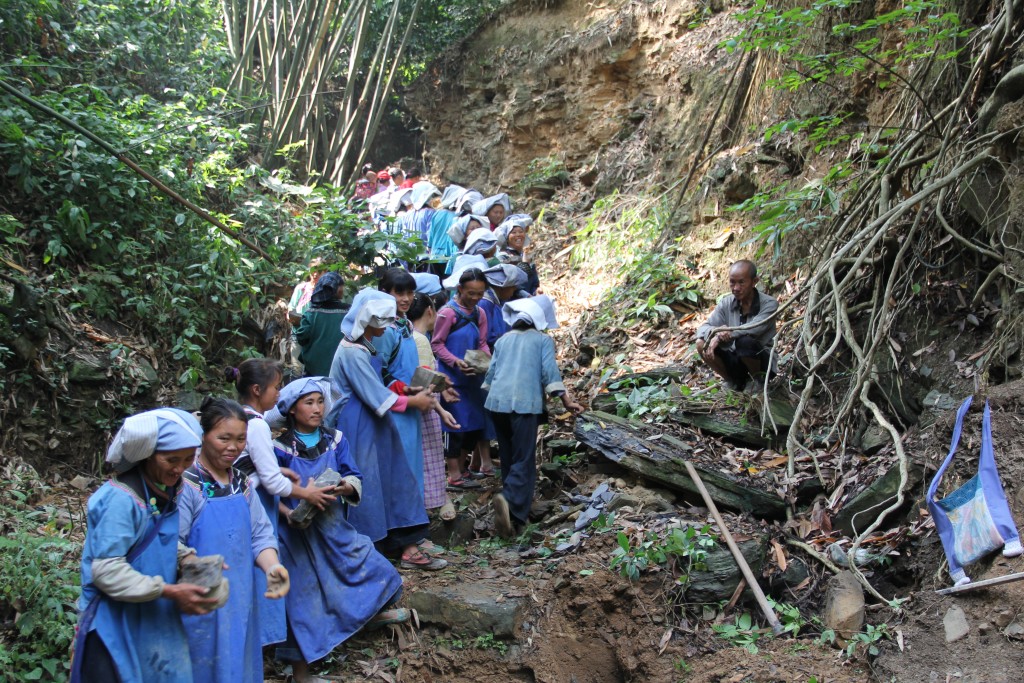I planned to conduct fieldwork in rural China with the help of research assistants. I knew I needed advice and translation and hoped that I would find partners and friends to go into the field with me, as I didn’t really want to be alone. However, I never found reliable research assistants. I learned to think of my research subjects as my friends and research assistants. They had as much to teach me as any other graduate student, professor, or guide. By the end of 10 months of fieldwork, I came to prefer working without official assistants but with local villagers and village leaders. This post shares some reflections on the challenges of finding reliable research assistants and how to rethink and appreciate the assistance available, writes Elise Pizzi
Working with research assistants, translators, and collaborators is common. The acknowledgements sections of books, papers, and dissertations are filled with thanks for the help received from local colleagues and assistants. When I started my fieldwork in China, I too intended to work with research assistants, co-authors, and collaborators. But I came to prefer conducting fieldwork alone.
I spent 10 months in rural China investigating drinking water management practices. Guizhou Province, in southwest China, is relatively water abundant, but many villages still do not have safe and reliable sources of drinking water. My dissertation explains why water-rich areas sometimes don’t have enough drinking water.
I did not expect to work alone or feel isolated because of my choice of methods when I conducted my fieldwork. In planning my research, most of the people who gave me advice or who had done research in China had a research assistant or a team who went into the field with them. Previous research (Thunø 2006) and posts on this blog (most recently Aurelie Brockerhoff) have effectively discussed the challenges of working with research assistants and local colleagues. But they ultimately benefit from the collaborative experience.
Research assistants can help with translation and interpretation. They provide insights into the community, language, and culture. They help find contacts and convince those contacts to talk to a foreigner. They help with data collection and analysis. They become research collaborators, coauthors, and friends. When I began my research, knowing that my Chinese was imperfect and I could benefit from help and guidance, I did not even consider the possibility of conducting fieldwork without ongoing collaboration.
Research help can be hard to find
I never managed to find reliable research assistants. I was assigned a local professor as an advisor at my host university. His research was not related to mine in method or content, but he was friendly and wanted to be helpful. He assigned a student to assist me with whatever I needed. She – and, in theory, several of her fellow students – were to be my research assistants, translators, and friends when we went into the field. But that plan did not work out.
The main problem was availability. My assigned research assistant was in classes 30 hours a week. Once school was over, she then went to Beijing for a two-week workshop. It was only once she came back to Guizhou that she was able to accompany me on field research. By that time, I had already been in Guizhou for 7 of my 10-month research grant. For those last three months, I went on a few research trips with her, but not with any consistency. Between family obligations, other work she had to do for professors, friends’ weddings, birthdays, and homework, we only managed to go to the field together twice. In my 10 months of fieldwork, my official research assistant and I worked together for about 6 days.
My research sites made finding available assistants more difficult than it might have been if I wanted to do research in a city. I had randomly selected two counties to be the focus of my research. Neither was convenient. On a good day, it took at least three hours to get to the county seat of the closer research site but more like seven hours to reach the villages of interest. Because my research sites were remote, I needed assistants who could spend at least a few days on each visit. Ideally, I had hoped to find someone to accompany me into the field for a week at a time or even longer. This proved impossible. Through my network of contacts, I could easily find people to help me for an afternoon or a day of interviews in the city, but I was never able to find someone to help me for more than a few days.
The second challenge I faced with research assistants was language ability. This, of course, was one of the reasons I had hoped to find someone to accompany me to the field; my Chinese is decidedly imperfect. I had hoped to find someone who could translate for me. I found professional translators who charged steep fees, but they only worked in the city and were not interested in getting on a bus for several hours to assist me in remote villages. (Fortunately, I did not need the formal or technical translating that would justify paying high professional fees because my interviews were informal).
There were three people I found who spoke English well enough that I was comfortable using English instead of Chinese. One could not leave the city because of family obligations. The other two were students outside of China. They had their own research obligations while they were in China and had to leave the country to go back to classes or to meet with advisors. Both were very helpful, but only temporarily. With the others, my Chinese was better than their English, so we simply spoke Chinese. While my Chinese improved tremendously, my research was slightly delayed while I figured out how to effectively communicate.
Short-term collaborators
In the end, I had a series of temporary research assistants. There were about 10 different people, each of whom I met through different people or organizations, whom assisted me for varying amounts of time—one hour to five days. Most of these were students who helped me while on their vacation or who happened to be doing their own fieldwork in Guizhou. I would have continued to work with any of them for the duration of my grant in China, but they had to return to school or had family obligations that only allowed them to work with me briefly.
The first person I worked with on my research was another graduate student. Her research was on a similar topic to mine, but with a different methodological approach, framework, and goals. She was also at a slightly earlier stage in the research process and had a different timeline. The main challenges of working together came from these differences. On paper, we were perfect collaborators because we had similar research topics and both wanted to do research in similar locations. In practice, I found it difficult to determine how much I could ask her to help me with my research since she had her own research agenda, obligations, and deadlines. While I enjoyed working with her and had hoped to continue, she had to return to her university to meet with advisors. When she left, she told me she would be back in a month or maybe two. She didn’t come back to China for six months, not until after I had already left. She had been my main hope for a collaborator, but we only managed to take a few research trips together, none to my main research site.

Several months later, I spent three days walking around rural villages with a local research assistant. He was a university student – the first from his village – and had never spoken to a foreigner before he met me. I met him on a research trip to his village with a different college student. I asked him about the water situation in his village and then asked if he would to take me to some of the surrounding villages. He took a couple of days off from drying tobacco with his family to take me to even more remote villages.
We walked along unmarked paths, through rice paddies and tobacco fields, to reach villages that were not on any map. Since getting between villages took so long, I spent as much time talking with him about life in the villages and at university as I did with informants talking about water management. By the end of the second day, I thought we were getting to be good friends. “I love China,” he told me as we were walking along a desolate path between villages, not another person in sight. “So, if the US and China were at war right now, I wouldn’t hesitate to kill you.” He was my favorite research assistant.
Informal research assistance
After working with him, I realized that I did not really want research assistants who were from the city or who were trained in conducting research. In fact, their training and assumptions about my research sometimes led them to try to tell me only what they thought I wanted to hear and filter out any extra information the villagers wanted to tell me. Instead, I just wanted to talk with villagers and village leaders directly about water management and any other interesting things that came up. I had a formal list of interview questions, but found that natural, flowing conversations were much more informative. Since I did not live in the village (and neither did my city research assistants), I sometimes did not know whom to ask about issues that turned out to be important. It was much more informative for me to show up to the village alone or with someone local, just hang out, chat, and wander around the village. I asked each village leader to take me on a tour of the water facilities in the village and, while they sometimes looked at me like I was crazy, they usually took me on the tour and talked to me about local conditions, governance, and any other topic they thought was relevant. These tours, by locals for an outsider with no other outsider to filter or set the agenda, were extremely informative. And they made research fun.

Fieldwork is just that: work. This is not unique to rural Guizhou – the challenges are universal. Fieldwork is hard, lonely and emotionally draining (see Kanchan Gandhi’s beautiful post). Plans fall through. Interviews are canceled. Informants get sick or go on vacation or don’t answer your calls. One of my meetings was canceled because of flooding. Another was canceled because US-China relations had a bad month and no officials would agree to talk to me.
These cancellations, delays, and other obstacles were frustrating, but out of my control. I had to be flexible about my research design and process. Instead of working with official research assistants, the village and township officials and employees became my friends and research partners. Instead of formal interviews or surveys or gathering data that I now know is a state secret, I just spent as much time as possible shadowing the local officials and talking informally, often over rice wine, about how governance and water management work in the village.
The local guides did not need to know the big picture of my research, what framework I was using, or my research design. Most were pretty excited just to speak to a foreigner and have someone from outside – especially someone from another country altogether – be interested in their local issues.
While working ‘alone’ was not what I would have chosen for myself, I now prefer it. Once I let go of my expectations of whom my research partners or friends would be and let the village leaders be my collaborators and research partners, I learned a lot more about the local community and the challenges of water management in rural Guizhou. The truth is that I was not really doing research alone. The relationships that were most important just weren’t the ones I expected to matter.
In the end, I was not ever really alone and my research benefited from the help of many more people than I could possibly name or thank. I didn’t have a formal partner or an equal collaborator. No one has seen all of the data or been with me to see every angle of my research or even visited half of my field sites. So while the overall project and research are mine alone, my acknowledgements will have to thank everyone who helped me along the way, kept me company, fed me noodles or wasps or rice wine.
Reference:
Thunø, M. (2006) In the ‘Field’ Together: Potentials and Pitfalls in Collaborative Research. In: Heimer, M. and Thøgersen, S. (eds.) Doing Fieldwork in China. Copenhagen: NIAS Press, pp.245-261.
About the author: Elise Pizzi
Elise Pizzi received her PhD in political science from the University of Colorado in 2015, and from August 2016, is an assistant professor of political science at the University of Iowa. Before attending graduate school, she lived in Sichuan, China and taught English. She also spent two years as a Peace Corps Volunteer in the Republic of Georgia. She combines her research interests and experience to study drinking water provision in rural areas of developing and transitioning countries. More broadly, her research focuses on public goods provision, water and natural resources management, and local governance. This post describes experiences while conducting dissertation fieldwork with the support of a 10-month Fulbright grant.
Project background:
This project examines why some villages in a water rich area face drinking water shortages but others do not. The research looks at the variation in geographic, social, and natural resource conditions of the villages, in village governance, and in systems for providing access to drinking water for village residents. Most of the research took place in Zhen Feng and Shi Bing counties of Guizhou province. Initial research was supported by the University of Colorado Beverly Sears Award and Department of Political Science. The research described here was primarily funded by Fulbright and took place from January to November 2014.





2 Comments